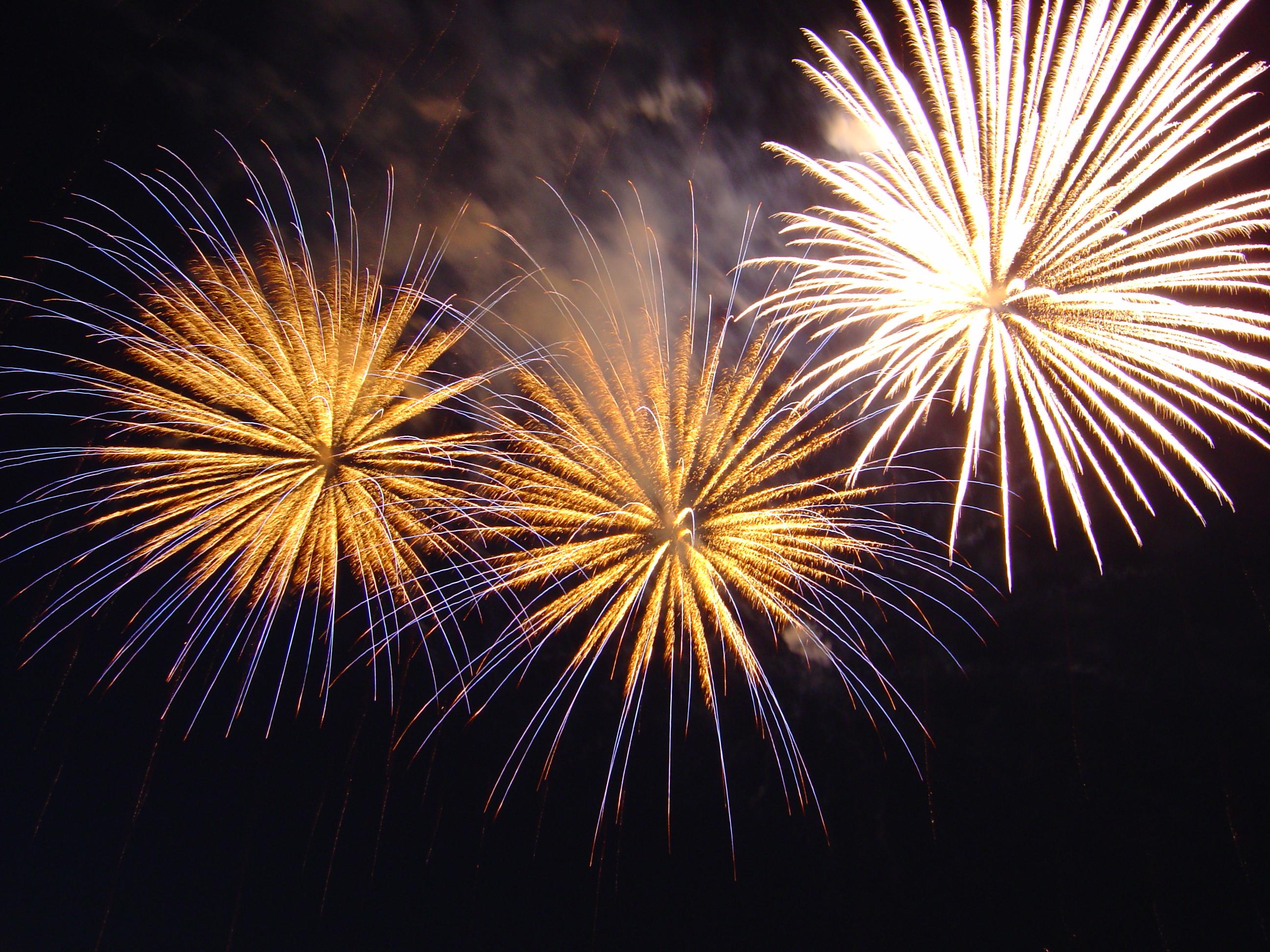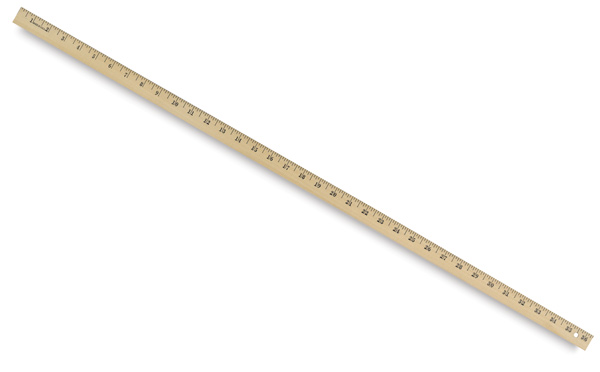Adrienne Celt
The asphalt path was cut into the hill so that place-seekers could walk evenly despite the hill’s steep grade. Aurora meandered, her mouth a cold oh over a dripping popsicle, scratching mosquitoes away from her legs like a child. She was following Paul, who was following Dan, who peered over the grassy slope for any unclaimed ground.
It was hopeless.
“The park always fills up early,” Paul confided to Aurora. “We should have gotten here at three.”
“Why didn’t we?”
“We can never get anyone to leave on time. To go anywhere.”
They hung a few paces away from Dan, who’d doubled back to reconsider the tree line. A few oaks formed a chain, a spine, down the hill, and beneath them there was a great deal of open space that was nonetheless worthless.
“You can never see the fireworks from there,” said Paul. “The branches block your view.”
“People sit farther down, though.” Dan rejoined them and gestured some distance past the trees. A thinner crowd had laid their blankets where he pointed, forming an imperfect chessboard. Aurora squinted and saw a man drilling a corkscrew into a wine bottle, the woman beside him rummaging in a tote bag. Aurora’s popsicle broke in half, one part falling onto the concrete and the other behind her teeth. She licked the stick clean and stuck it into the pocket of her shorts.
“How about right here?” she said.
A thin band of grass above the path offered two person-sized spaces between blankets that no one, so far, had been bold enough to claim, as they bordered closely on established seatings.
“I guess it’s the best we can do,” said Dan. He rolled out one blanket and Paul rolled out the other, which he and Aurora sat down on together. Aurora leaned into him, her back against his chest. The family to their left glanced over sideways, slit-eyed, but didn’t say anything. Their little girl got up and ran across the path, then back again.
“Fire!” she cried.
“Yes,” said her mother. “But not yet.”
Aurora had never been to a fireworks show of quite this type. The few she’d attended before had been choreographed over lakes so that viewers, while near enough to ooh and ahh, were not directly below the explosions. She’d also lit off many contraband rockets in her own front yard, which whistled and shrieked with appropriate menace, but never spit out more than a handful of sparks.
The light grew purple, and indistinct human forms rustled around. A single firework shot up overhead, so close that Aurora could see the red embers glowing on the wind. People clapped, here and there.
“They always have a few false starts like that,” Paul said. And sure enough, five minutes later another white rocket went up and burst open to general delighted murmurs. Only to be followed by another stretch of empty dusk and restive shifting.
“What’s this show for, anyway?” Aurora asked. Paul had spent all week trying to convince her to come, despite her reservations about insect bites from sitting in the grass after dark. Now that the sun was all the way down, however, the mosquitoes seemed to have disappeared. Aurora heard a faint humming somewhere above her, but felt nothing landing on her, and saw no careful parents spraying insect repellent up and down their children’s limbs.
“Shhh.” Paul put his hand over hers, tilted his head forward. “It’s starting for real. They always open with the cascade.”
Down at the bottom of the hill, in the nook between the slope and the flat ground, a wooden stage was set up with a rectangular arch on top. The left-hand, top corner of this structure was now burning.
The blaze slid across the arch like a zipper, igniting a shower of sparks that fell with the even, fluid nature of a waterfall. Some of the fire was blue and some was white and some had a golden hue like no fire Aurora had ever seen before. Not golden like an ordinary yellow flame, but instead like metal.
Something smelting and shining with mineral density.
“How do they do that?” Aurora couldn’t will herself to look away, but her voice was urgent. Paul just laughed.
“How do people do anything?”
From somewhere behind the shower of sparks three rockets shot up above the crowd and Aurora flinched. If they had been just a hair off their angles the rockets would have whistled into the nest of blankets and flesh. But they were aimed precisely, and exploded in geometric patterns, colors and flowers, leaving gusts of fire shrapnel blowing off towards the trees and the town beyond.
Every face was pointed up. Every body lay prone on the ground with perfect vulnerability – skin exposed, clothes of soft cotton, hair a blanket of combustion waiting to happen. Once Aurora saw an ember float down and land on the collar of a woman’s shirt, but the woman reached up calmly and palmed it off without averting her eyes from the show.
And the fireworks came, in threes and fives and tens. Some spun around as caustic as water snakes, some just seemed to shimmer into being accompanied by a series of soft pops. Aurora looked for their source, but couldn’t spot any person down by the platform lighting a fuse. She thought she heard, between the reports of the crackers, a faint shuffle of footsteps just beyond the crowd. But the position of these footsteps did not correspond to the flight of the fireworks, the angle of the soaring and crackling flames. So she stopped listening for them and let herself fall instead into perfect focus on the lights above her.
Some were purple, some were green. A few fireworks seemed to wink eyes at the crowd, causing a ruffle of laughter and pointing. One expanded into a large red mouth that consumed the bodies of many diminutive others. And though a few seemed to travel off into the far distance, exploding over remote towns, most stayed so close above the heads of the watchers that their conflagration felt as intimate as a kiss.
They kept coming, siege upon siege of gorgeous light. Aurora was dizzy with them, grateful to be lying on her back. When, she wondered, had she ever seen a fireworks show that wasn’t for any defined purpose? The Fourth of July or a sports game’s halftime show? When had she seen a demonstration that so consumed its audience, an explosion of gunpowder, of chemical compounds, that spoke back to the gleeful accolades of the crowd with whispers and shrieks and coughs of ecstasy?
She wanted to ask Paul and Dan these questions, but their faces remained resolutely trained on the sky. Aurora pressed her spine more firmly into Paul’s breastbone, his stomach, and felt his hand tighten over hers in reply.
Six red birds flamed above them, growing out of a small glowing egg.
Three incandescent scarves floated on the wind and then shot off in too many directions to count, as though jettisoning their burning threads in unison.
A crack broke open in the sky and Aurora could almost see through it to another world before it spit and fizzled out to make way for the next explosion, and the next.
Finally, Aurora had a question that was pressing enough to make her turn her head, to try to get Paul to meet her gaze.
“So,” she said. “How long does it go? When does the show end?”
She saw several short white pops reflected in Paul’s eyes before he tore them away from the black fabric of the night above. He looked confused.
“It never ends,” he said, with a frown. Then he looked back up, delight marking his expression.
Aurora didn’t know what to say. A firework exploded, and each spark broke open into more sparks, which broke open themselves, exponentially. And with each explosion Aurora’s heart, too, expanded. Unfolding more times than she ever before knew was possible.
Adrienne Celt is a writer, editor, and comic artist living in Tucson, AZ. Her fiction appears or is forthcoming in Esquire, The Kenyon Review, Puerto del Sol, Carve Magazine, The Southeast Review, Blackbird, Gargoyle, and elsewhere. Her comics, essays, and translations can be found in The Rumpus, Lemon Hound, Cerise Press, Hobart, Barrelhouse, Gigantic Sequins, and online at loveamongthelampreys.com. Follow Adrienne on Twitter here.


